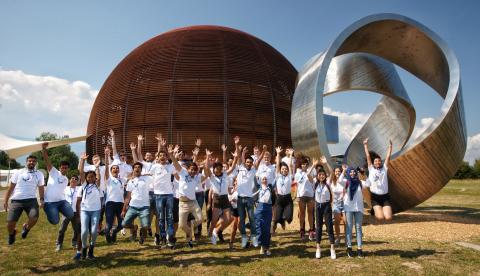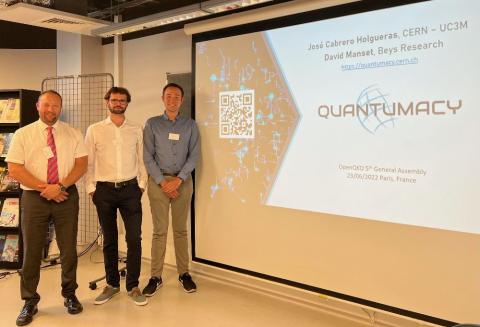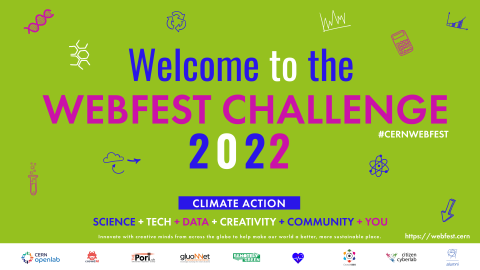The Webfest – CERN’s annual hackathon based on open web technologies – will celebrate its tenth anniversary this year. CERN is celebrating with a bumper edition: rather than taking place over a single weekend, this year’s Webfest will run online across July and August. This will enable participants to develop their projects and ideas over a longer period of time.
Due to the COVID-19 pandemic, the last two years have seen the Webfest held online, with over 300 people from 63 different countries taking part in last year’s event. This year, the Webfest will continue in an online format, once again providing another opportunity for students from around the world to get involved. The last two years have shown how students from across the globe can work together successfully to innovate for positive societal impact.
The Webfest has been running annually since 2012, with the aim of encouraging collaboration between bright minds. During the event, participants collaborate on innovative projects and design applications that can be beneficial to society. In previous years, participants have worked on a broad range of creative projects. Last year’s theme of the UN Sustainable Development Goals (SDGs) saw several ideas pertaining to environmental impact, focusing on SDG 13: climate action. Projects focused on nuclear energy, wildfire alerts, increasing understanding of climate change, and more.
As part of CERN’s Year of Environmental Awareness, the upcoming Webfest will focus on climate action and sustainability. Students taking part will be assigned to a challenge related to climate action, with these challenges set by a project linked to CERN. Students will work together in small teams to propose solutions for the challenge they have been set.
The event will incorporate an introductory session on Friday 8 July, with the winners announced in the closing session on Wednesday 31 August. Between those dates, there will be two further feedback sessions, as well as workshops and networking sessions.
The World Wide Web was born at CERN; join us online to get involved in climate action and make a difference. Together, we can put technologies like the Web, machine learning, data visualisation and more to use in the fight against climate change.
Find more information on the Webfest, including how to register, here. Registration closes on Tuesday 5 July.
- Alexia Yiannouli



